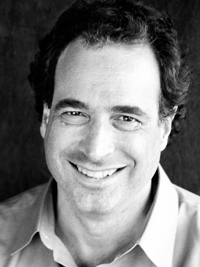NOTE: Images in this archived article have been removed.
 It’s New Economy Week, and PCI Fellow Michael Shuman is sharing 24 Ways to Invest Locally. Each day this week, Post Carbon Institute is rolling out four ways you can—right now—begin to move your money from Wall Street to Main Street, and help build a vibrant, more resilient economy in your community.
It’s New Economy Week, and PCI Fellow Michael Shuman is sharing 24 Ways to Invest Locally. Each day this week, Post Carbon Institute is rolling out four ways you can—right now—begin to move your money from Wall Street to Main Street, and help build a vibrant, more resilient economy in your community.
TIPS 9-12
(9)
Weave Investor Networks – The Local Investment Opportunities Network (LION) of Pt. Townsend brings together local investors and businesses each month to establish "preexisting relationships" that facilitate the circulation of business plans. New
LIONs are spreading around the country. Unlike traditional angel-investor networks, where entrepreneurs present their business plans at periodic dinners, LIONs often involve unaccredited (non-wealthly) investors.
(10)
Harness Federal Programs – – Various national programs provide generous tax deductions for local investors who support anti-poverty initiatives through
New Markets Tax Credits and provide other benefits to designated Community-Development Corporations (CDCs) and Community Development Financial Institutions (CDFIs). Make sure accredited investors and foundations in your region are fully aware of these opportunities, and encourage them to participate.
(11)
Promote Program Related Investments – – By law, foundations must give away at least 5% of their assets each year. The other 95% is typically invested in distant stocks and bonds. Work with your local foundations to help them move that 95% (or even just 1%) into local business (
www.irs.gov/Charities-&-Non-Profits/Private-Foundations/Program-Related-Investments. If these businesses are “program-related” and the investment does not succeed, the foundation can apply any losses to fulfill its annual grant-giving obligations.
(12) Take Your Local Businesses Public – – Until recently, it has been very expensive to restructure a small business so that it could accept investment from the 99% of non-wealth people in your community who are "unaccredited." But thanks to "crowdfunding reforms" signed into law by President Obama earlier this year, new web sites like
CuttingEdgeX bring down the costs of "going public" and allowing unaccredited investors to purchase as much as $2,000 of local stock. Encourage your local businesses and investors to take advantage of these sites. You might even start your own…
Check back every day this week for for more ways to invest in your local economy.
 It’s New Economy Week, and PCI Fellow Michael Shuman is sharing 24 Ways to Invest Locally. Each day this week, Post Carbon Institute is rolling out four ways you can—right now—begin to move your money from Wall Street to Main Street, and help build a vibrant, more resilient economy in your community.
It’s New Economy Week, and PCI Fellow Michael Shuman is sharing 24 Ways to Invest Locally. Each day this week, Post Carbon Institute is rolling out four ways you can—right now—begin to move your money from Wall Street to Main Street, and help build a vibrant, more resilient economy in your community.





